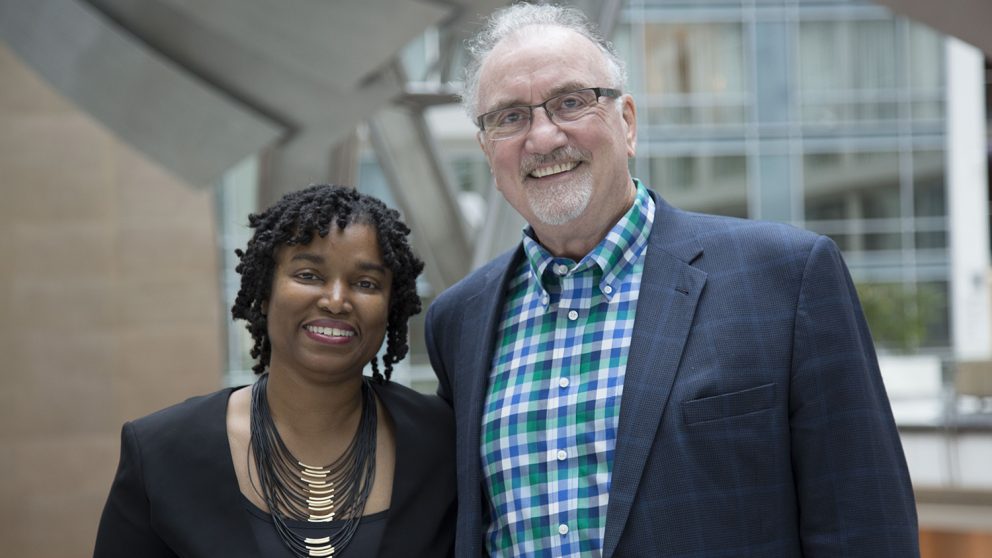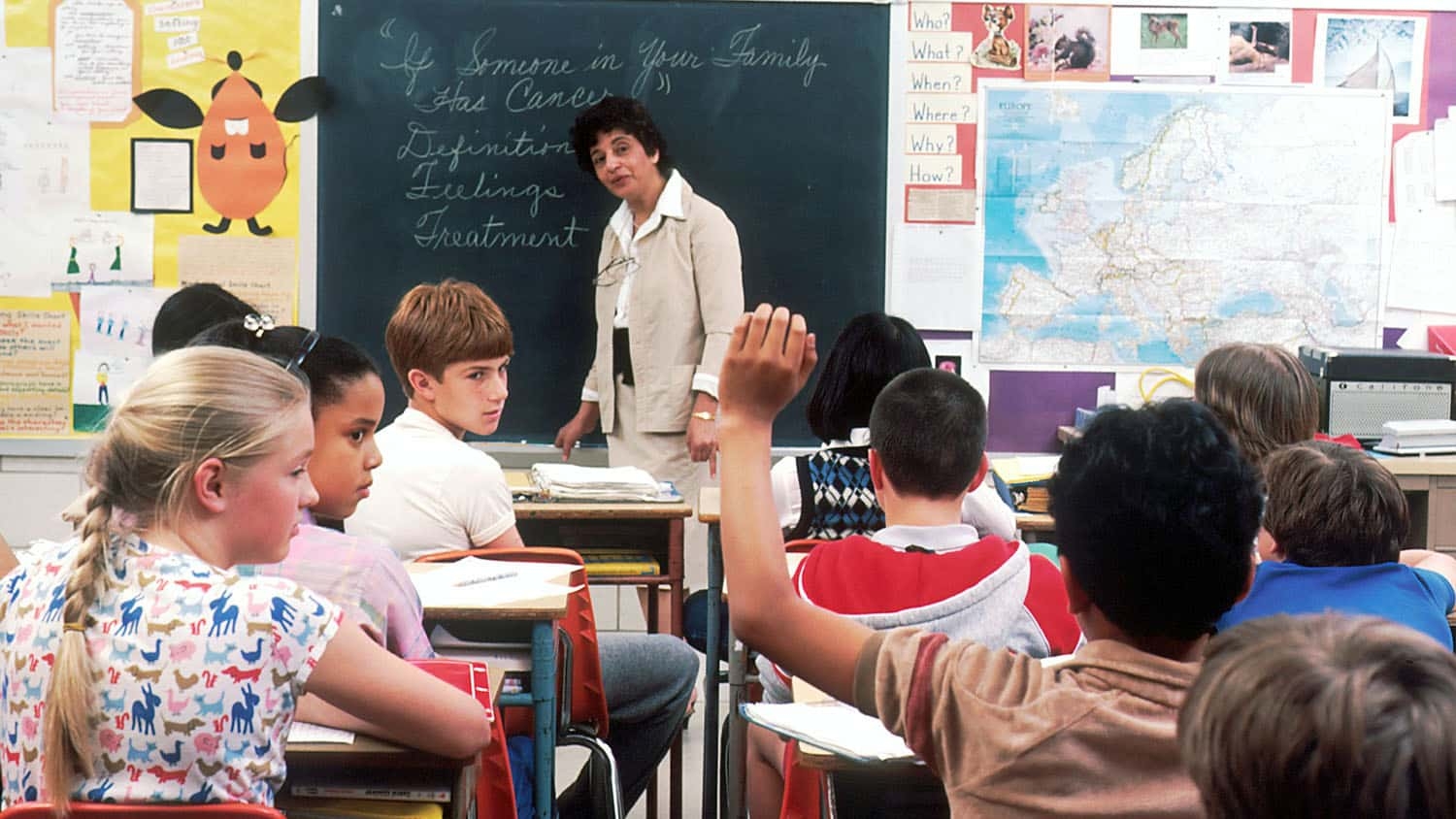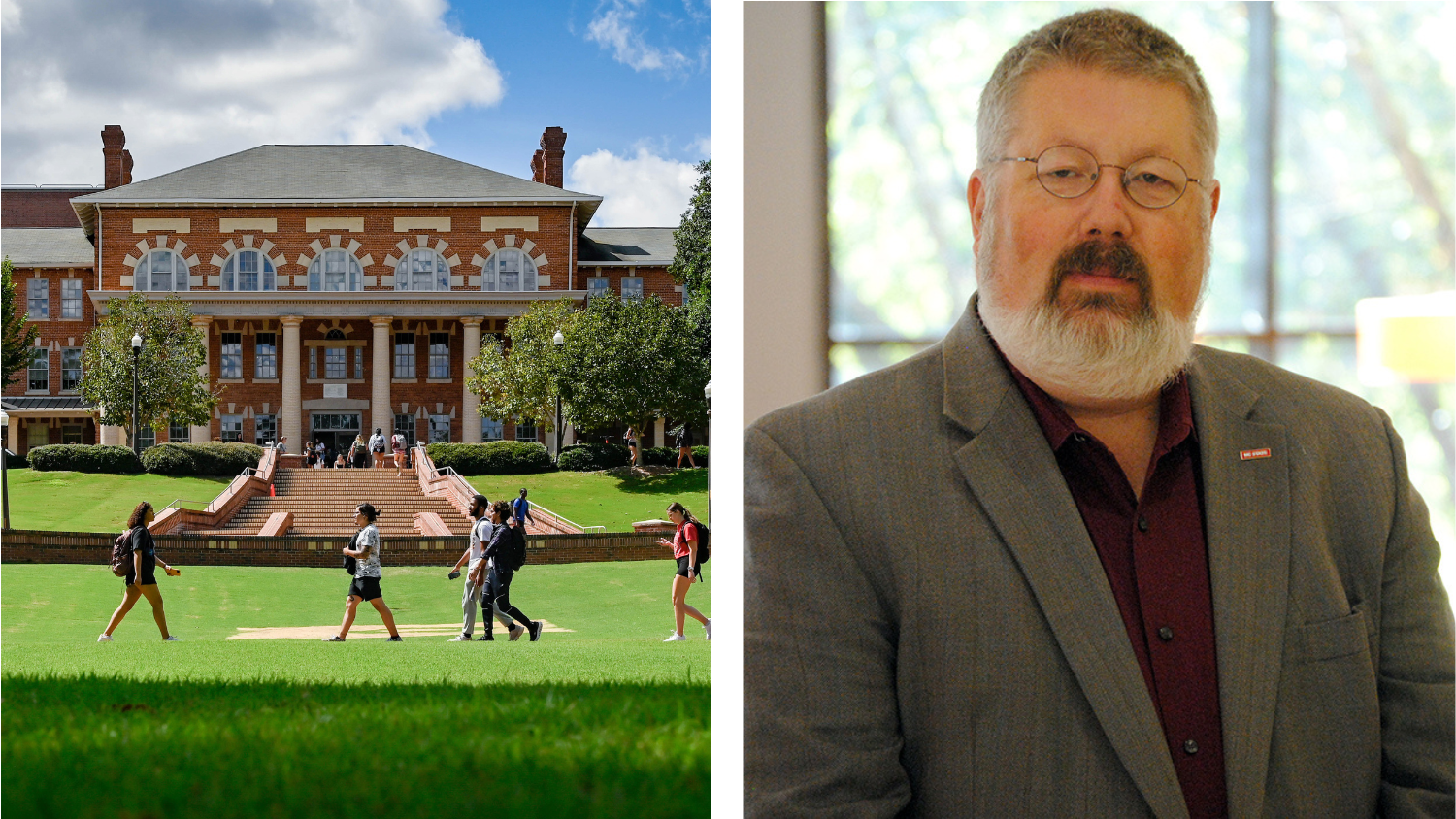The Importance of African-American Speech: a Q&A with Walt Wolfram
In 1965, a young researcher named Walt Wolfram began studying how the African-American community in Detroit used language. It was the beginning of a decades-long effort to better understand the historical, cultural and societal importance of African-American speech.
Drawing on his personal experiences and the work of scholars from around the country, Wolfram is now releasing a documentary film focusing exclusively on African-American speech. The film, Talking Black in America: The Story of African American Language, was produced by the Language and Life Project at NC State University.
NC State’s research blog, The Abstract, recently had a chance to sit down with Wolfram, the William C. Friday Distinguished University Professor of English at NC State, to learn more about what drew him to the study of African American speech – and why he feels the new film is important.
The Abstract: Your latest documentary, Talking Black in America, focuses on African-American speech – how it has developed into many different dialects, why it has been so important in shaping American English, and how it has been, well, vilified in many cases. You’ve been studying African-American speech for more than 50 years – what made you decide to make this film now?

Walt Wolfram: Despite extensive research on African-American speech, public information about the varieties of African-American English is woefully inadequate. In fact, misinformation and myths about the nature of African-American speech are so pervasive in our society that it is akin to a modern geophysicist maintaining that the planet Earth is flat. As a researcher, I firmly believe in the democratization of knowledge; if a researcher has knowledge, then it is worth sharing, especially with the communities that fuel our research and a public in need of authentic knowledge to counter malignant misconceptions. But it takes a lot of resources to undertake a documentary venture of this type. NC State’s linguistics program is unique in that it combines a robust research tradition with a proactive outreach focus that includes the regular production of documentaries for television. No other university combines linguistic research and engagement in such a seamless, synergistic way.
TA: You started studying African-American speech in the projects of Detroit in 1965. What drew you to that field of study?
Wolfram: As a child of immigrant parents in urban Philadelphia who spoke limited English, I developed an inclination for observing the use of language in society. To be candid, it was critical for navigating my own path as a linguistic alien. My marginalized linguistic status heightened my sensitivity to the social significance of language and I studied languages and linguistics in my undergraduate and graduate school education. But it was really the social side of language that most intrigued me, and I became one of the pioneers in a newly developing field of “sociolinguistics” in the 1960s. At the same time, my urban socialization made me quite comfortable negotiating densely populated urban areas that included a range of social classes and ethnic groups. Conducting fieldwork in Detroit—even during the Detroit riots—seemed like a natural extension of my background experience and socialization.
TA: In order to study speech, you have to get people to talk to you. Not to put too fine a point on it, but how did you – a white guy from Pennsylvania – convince the African-American community in Detroit to work with you on your research?
Wolfram: That’s a good question, and there is no easy answer given the racialization of our society. However, a couple circumstances were on my side. First, my own experiences in a working-class community in an urban area was an asset for working in a city like Detroit. Second, my background in athletics gave me some credibility. As an all-city basketball and football player in Philadelphia who played these sports in college, I had some street cred. With teenagers, I’d hang out on the basketball court, play in pick-up games, and then ask them for an interview.
In fact, one of my favorite, admittedly self-aggrandizing quotes about establishing fieldwork rapport comes from a teenaged interviewee from East Harlem, who said “I seen you shootin’ all them balls in and see how you can dribble and all, I thought you played pro basketball.” That kind of perception was helpful in the youth community where athletic ability was social capital.
Finally, I have always felt that honest sincerity, authenticity and humility help transcend social barriers if given a chance. I’m an extrovert; I like people and love engaging them. Should the truth be known, I have always felt more comfortable interacting with ordinary people in working-class communities than I have with erudite scholars in academic settings. That’s where I come from and it remains an important part of who I am; in fact, I consider myself an “accidental academic” who would have been just as comfortable as a community worker or athletic coach as I am as an academic.
At the same time, I fully realize that a single person cannot do justice to the topic of African-American speech. An engaged group of the top black and white scholars on African-American speech serve as associate producers for the film to complement a couple of highly talented producers, Neal Hutcheson and Danica Cullinan. This documentary is truly a collaborative team effort.
TA: “African-American speech” is a sweeping term, and African-American dialects can vary widely from place to place. For example, there are huge differences in the speech patterns of folks living in the Mississippi delta, Harlem, Oakland and the Sea Islands off the Georgia coast. You started studying African-American speech in Detroit, but how did you decide where to go next? When there are so many different dialects, how do you go about finding an organized way to study and understand them?
Wolfram: One of the myths that has plagued the study of African-American speech is what I call the “homogenization myth.” This is the assumption that there is a common vernacular speech pattern shared by African Americans throughout the United States regardless of where they are regionally situated. Unfortunately, this was even perpetuated by some of the earlier linguists who limited their studies to non-Southern metropolitan areas like Chicago, Detroit, Los Angeles, Philadelphia and New York City. After my study in Detroit, I wanted to investigate rural Southern areas where the roots of African-American speech developed. So I went to rural Mississippi in the early 1970s with a racially mixed group of fieldworkers and we interviewed both black and white working-class speakers. We experienced some social harassment and civil disruption in the process, but we also collected some great data, further piquing my interest to expand the study of African-American speech in an even wider range of communities.
In North Carolina, for example, we have conducted interviews in even more varied contexts—in isolated, African-American communities in coastal regions like Hyde County, in small, ethnically concentrated rural communities like Princeville, and in mountainous regions like Texana in the Smoky Mountains, as well as in urban areas like Durham and Raleigh. In representing these diverse communities, we have seen that African-American speech is every bit as diverse as European-American speech in different regions and among different social groups.
TA: Why is it important for people to understand where speech patterns come from or how they shape the way we communicate with each other?
Wolfram: Speech patterns are as integral to culture, history and society as any physical, cultural or historical artifact. These patterns reflect the past, the present and the future of African Americans in society. Unfortunately, language is typically invisible or erased when we examine the cultural heritage of African Americans. I recently asked three different audiences where I was lecturing on African-American speech if they had ever attended a presentation on the history of African-American speech during Black History Month. Not one person in these audiences had ever even heard of such a presentation. How can we understand the experience of African Americans without understanding the unique, historical and contemporary development of language? Language is central to understanding communities, culture and communicative traditions. Furthermore, it’s critical to debunking the widespread myth that African-American speech is just imperfect English or a “collection of errors.” To the contrary, it is highly systematic, patterned and functional.
TA: Talking Black in America covers a lot of ground. If there was one idea that you could make sure viewers take home with them, what would it be?
Wolfram: African-American English is a unique, legitimate linguistic system that is worthy of our respect and admiration rather than ridicule and dismissal. And it has contributed more to the development of contemporary American English than any other dialect of English—in both everyday interaction and in the performance of English. The English language would be a much less vibrant and dynamic language without its distinctive contribution.
- Categories:



